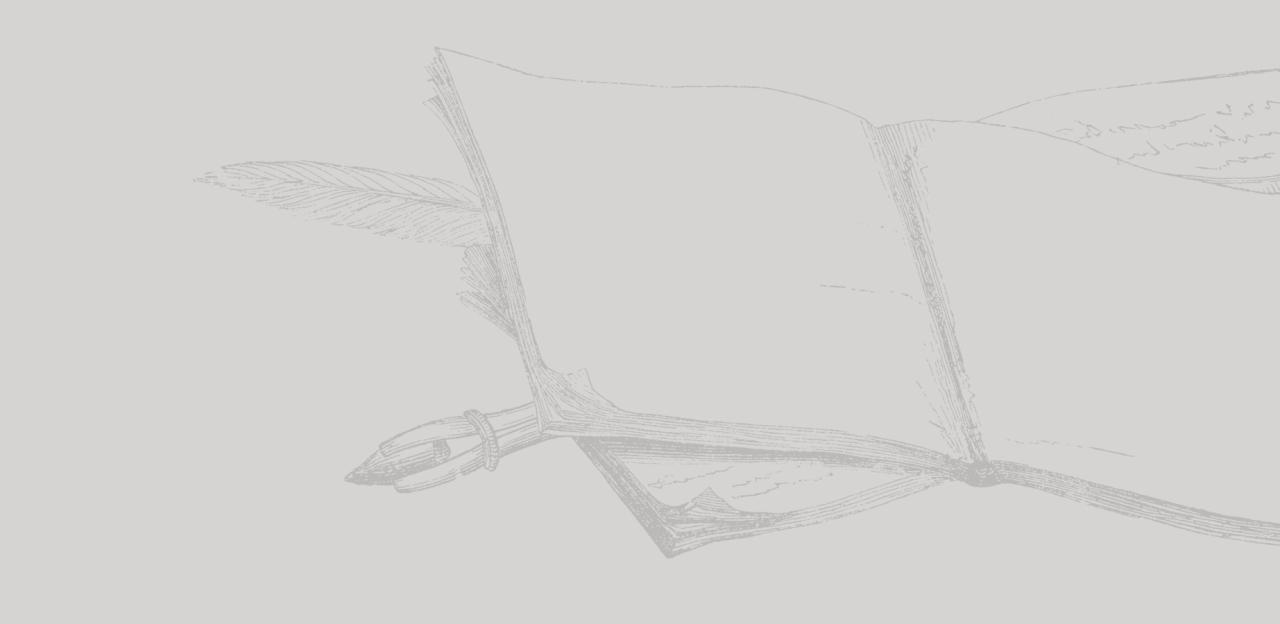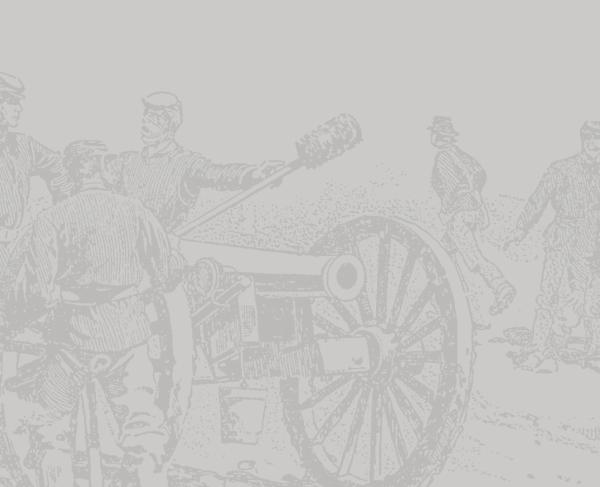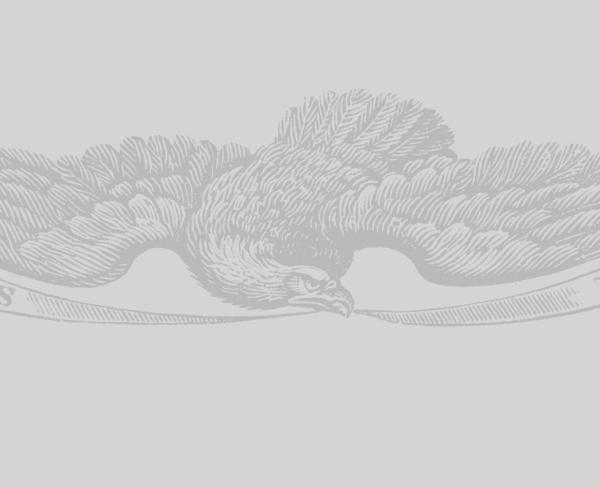Official Report of Col. David Stuart, USA

The following is the report of Col. David Stuart from the Official Records: Series 1, Volume 10, Part 1. Col. David Stuart and his Federal regiments were slated to hold the extreme left of the Union line at Shiloh near the opening of the battle. The Civil War Trust in 2012 announced a new preservation campaign to save and preserve a portion of the battlefield where Stuart's men fought on April 6, 1862.
HEADQUARTERS SECOND BRIGADE, FIFTH DIVISION,
Camp, Shiloh, April 10, 1862
SIR: I have the honor to submit a report of the part taken by the Second Brigade of General Sherman's division in the engagement of the 6th and 7th instant.
The brigade, composed of the Fifty-fifth Illinois, commanded by Lieutenant-Colonel Malmborg; the Fifty-fourth Ohio, Colonel T. Kilby Smith, and the Seventy-first Ohio, Colonel R. Mason, occupied the extreme left of the advance, General Prentiss' division on my right and front. In obedience to General Sherman's orders I kept a company at and in the vicinity of the ford of Lick Creek, on the Hamburg road, and another on and in the vicinity of the Back road (coming in on the hills opposite and southeast of the encampment,),as picket guards, and on his order on Saturday sent six companies out on the Hamburg road, with a squadron of cavalry sent forward by General McClernand, to reconnoiter beyond Hamburg. The disposition of my pickets was reported to and approved by General Sherman. At 7.30 o'clock on Sunday morning I received a verbal message from General Prentiss that the enemy were in his front in force. Soon after my pickets sent in word that a force, with artillery, were advancing on the Back road. In a very short time I discovered the Pelican flag advancing in the rear of General Prentiss' headquarters. I dispatched my adjutant (Loomis), of the Fifty-fourth Ohio, to General Hurlbut, who occupied with his division the rear in the center, to inform him that General Prentiss' left was turned, and to ask him to advance his forces. The reply was that he would advance immediately. Within fifteen minutes General Hurlbut sent forward a battery, which took position on the road immediately by Colonel Mason's (Seventy-first) headquarters. A regiment (the Forty-first Illinois, as I remember) formed in line on the right of this battery. Observing these dispositions, and expecting that the remainder of General Hurlbut's division would be up quickly, I established my line of battle accordingly, with the right of the Seventy-first Ohio resting opposite the eastern extremity of the camp of the Fifty-fifth Illinois, the Fifty-fifth Regiment next, on the left, and the Fifty-fourth beyond, facing the south. I had two companies of the Fifty-fifth Illinois and two companies of the Fifty-fourth Ohio detached as skirmishers on the hills opposite and across the creek or ravine where the enemy was endeavoring to plant a battery, covered by a much larger force of skirmishers. From a convenient position on the brow of the bank north of the creek with my glass I could observe all their movements. Having succeeded in planting their battery in a commanding position they opened a fire of shell upon us, under cover of which the infantry advanced upon us diagonally from the left of Prentiss' division, and also from the right of their battery. I hastened in person to the battery I had left half an hour before in front of Colonel Mason's tent to order them farther to the east, in front of my headquarters, where they would have had a splendid fire as well upon the enemy's battery as upon the advancing infantry. The battery had left without firing a gun and the battalion on its right had disappeared.
For above a quarter of a mile to my right no soldier could be seen, unless fugitives, making their way to the rear. A large body of the enemy's troops were advancing due north toward Mason's camp, and I saw that the position of my brigade was inevitably flanked by an overwhelming and unopposed force. Hastening back to my brigade, I found the enemy rapidly advancing on its front. The Seventy-first Ohio had fallen back, under the shelling of the enemy's guns, to some position (as I am informed by Colonel Mason) about 150 yards in the rear, and reformed on a ridge of ground very defensible for infantry, but I could not find them, and had no intimation as to where they had gone. Before I could change position the Fifty-fifth Illinois and Fifty-fourth Ohio were engaged,but as soon as possible I withdrew them to a position on the brown of a hill, ad formed a line which, extended, would intersect my first line diagonally from northwest to southeast. At this point I had not to exceed 800 men of the Fifty-fifth Illinois and Fifty-fourth Ohio. I saw nothing more of the Seventy-first Regiment through the fight. The enemy's force of five regiments of infantry and a battery of four guns, which had been moving on our right flank, were here brought to a stand, and formed a line of battle; a body of cavalry were sent off on our then right toward our rear,to harass or cut off our retreat; a part of the force which had attacked our first front was disposed with a vies of flanking us on our present left. Against this latter force (moving through a ravine, which had its mouth just below and in the rear of our extreme left) I sent a detachment of four companies of Zouaves, Fifty-fourth Ohio, under Major Fisher, by whom they were held in check during the fight. This engagement opened, the enemy's line and ours being established at a distance of about 150 yards apart. At this point we fought and held them for upwards of two hours. The enemy's lines were within the edge of a grove, pretty well defended by trees; the space between us was an open, level, and smooth field. The disposition of their forces was made deliberately, and occupied fully fifteen minutes after we came upon the ground.
Inadequate as I knew my force to be, I was encouraged to fight it and hold my position, first with the object of detaining the enemy's forces from advancing toward the river, and secondly because I received a message from General McArthur,who appeared in person somewhere in my vicinity, to hold my position, and that he would support me on my right. I could not find the Seventy-first Ohio Regiment, and had less than 800 men under my command. During the action we observed a battery planted southeast of us in a commanding position, to enfilade our line. It was, however, employed with little beyond threatening effect, the firing being too high. We had received no support on our right, as promised by General McArthur. We had emptied the cartridge boxes of the killed and wounded,and our ammunition was exhausted. Our fire was so slackened from this cause and our losses that I was apprehensive of a forward movement by the enemy, who could easily have overwhelmed us and thrown us into ruinous confusion. With the advice of Colonel Smith,of the Fifty-fourth Ohio, and Lieutenant-Colonel Malmborg, commanding the Fifty-fifth Illinois, I gave the order to fall back through the ravine and reform on a hill to our right. I led the remnant of my brigade in good order to the point selected. When we reached it, the enemy had advanced on our left with their battery and were on a commanding position within 600 yards. They opened a fire of shell upon us, which compelled me to move on still farther, sheltering the command as well as possible by ravines and circuitous paths, till we reached a cavalry camp, where the brigade was reformed. On our way we were joined by a small remnant of the Seventy-first, under command of Adjutant Hart, of that regiment (some 17 or 18 men.) Finding I was beyond the line of the enemy,after consultation I ordered the brigade the brigade to march to the rear, toward the Landing, in preference to sending for ammunition, which I apprehended would not reach us. Within a quarter of a mile of the batteries the brigade was halted by an officer of General Grant's staff, who stated that ammunition was being sent back, and ordered that every fragment of regiments moving toward the Landing should be stopped.
Suffering from a wound I had received in my shoulder before the termination of our fight I turned the command over to Colonel T. Kilby Smith, of the Fifty-fourth Ohio, the next in rank, and proceeded to the Landing to learn the extent of my injury. Colonel Smith left the command to Lieutenant-Colonel Malmborg temporarily, while he returned to find and unite with the brigade the left wing of his regiment, which had become detached from us in their defense of our left flank, under Major Fisher. Meanwhile General Grant, passing, ordered Colonel Malmborg to form a line near the batteries. Major Fisher soon came in with his men and joined the line. Through Colonel Malmborg's efforts a line of over 3,000 men was formed, composed of remnants of regiments moving towards the Landing . Major Andrews of the Seventy-first, here came up with a portion of the left wing of his regiment, about 150 men, whom he had led to the bank of the Tennessee, where he hailed the gunboats, informing them of the approach of the enemy. So much of the brigade were in the last engagement near the batteries.
On Monday morning the brigade took the field, under the command of Colonel Smith. Its conduct was under the observation of the general himself. I was not able to do more than to make an effort to excite the enthusiasm of the men and lead them to the field when they were ordered forward into action. I turned the command over to Colonel Smith soon after. The experience of Sunday left me under no apprehension as to the fate of the brigade, if coolness, deliberation, and personal bravery could save it from loss or disgrace. Colonel Smith, from the beginning to the end of the engagement on Sunday, was constantly at his post, rallying, encouraging and fighting his men under incessant fire, regardless of personal safety.
I was under great obligations to Lieutenant-Colonel Malmborg, whose military education and experience were of every importance to me. Comprehending at a glance the purpose and object of every movement of the enemy, he was able to advise me promptly and intelligently as to the disposition of my men. He was cool, observant, discreet, and brave, and of infinite service to me. Adjt. Charles Loomis, of the Fifty-fourth, who was my only aide discharged his duties with the utmost promptness and gallantry. He was intelligent, brave, and is a very meritorious officer.
It is my duty to make special mention of Adjutant Hart, of the Seventy-first Regiment, who, having lost his own regiment, sought a place in the ranks of the Fifty-fifth, and with 17 men of that regiment fought there bravely from first to last. Every captain in the Fifty-fifth did his duty, with one disgraceful exception, and he is under arrest. The same is true of the lieutenants,with one exception,and he also is arrested.
The following named officers, non-commissioned officers, and privates are reported to me by Lieutenant-Colonel Malmborg as meriting notice especially:
Captain Wright, Co. F, who was wounded; Captain Heffernan, Co. H; Captain Chandler, Co. D; Captain Slattery, Co. I; Second Lieutenant E. C. Lawrence Co. B. who was wounded;Second Lieutenant Hodges, Co. C, killed ; Second Lieutenant J. R. Roberts, Co. D; First Lieutenant Weldon, Co. H. badly wounded;; Second Lieutenant Aagessen, Co. H. badly wounded; First Lieutenant Crooker, Co. I, badly wounded;; Sergeant Glass, Co. A; Corporal Williamson, Co. A. wounded; Corporal Simpson, Co. A, wounded; Corporal Erickson, Co. A; Private Hebb, Co. A; Sergeant Elliot, Co. B, badly wounded; Sergeant Huntington Co. B;; badly wounded; Corporal Payne, Co. B; Private Sullivan, Co. B; Private Bradford, Co. B; First Sergeant Partch (A. E.), Co. C; badly wounded;; Sergeant Curtiss, Co. C; Corporal Shultz, Co. C, badly wounded; Corporal Oliver, Co. C; Private Mahan, Co. C, badly wounded; Private Kettleson, Co. C., badly wounded; Sergeant Smith, Co. D, badly wounded; Sergeant Greer, Co. D badly wounded; Corporal Knapp, Co. D badly wounded; Corporal Harrell, Co. D, badly wounded; Private Burk, Co. D, badly wounded; Private Rodenbaugh, Co. D, badly wounded ; Sergeant Porter, Co. E, badly wounded; Sergeant Short, Co. E; Corporal Campbell, Co. E; Corporal Merrill, Co. E; Private Arndt, Co. E; Private Boltinghouse, Co. E; Sergt. George Sanford, Co. F; wounded-dead;
First Sergeant Shreves, Co. F. wounded; Corporal Haney, Co F; wounded; Corporal Ferguson, Co. F, wounded; Private Bone, Co. F, wounded; Private Keffer, Co. F, wounded; Corporal Davis, Co. G, wounded; Corporal Newell, Co. G, wounded; Private Hawk, Co. G, wounded; Private Mix, Co. G, wounded; Sergeant McCready, Co. H; Sergeant De Wolf, Co. H, killed; Sergeant Crouch, Co. H. killed; Corporal Richardson, Co. H, wounded; Corporal Healey, Co. H. wounded; Private Adams, Co. H.; Private Beers; Co. H. wounded; Sergt. E. T. Slattery, Co. I, badly wounded; Sergeant Armstrong, Co. I, wounded; Corporal Lynn, Co. I wounded; Corporal Lull, Co. I wounded; Private Peters, Co. I wounded; Private Kimberk, Co. I wounded; Sergeant Kendrick, Co. K. wounded; Corporal Hanthorn, Co. K, wounded; Corporal Rouse, Co. K, wounded.
Respectfully,your obedient servant,
D. STUART,
Colonel, Commanding Second Brigade
Captain J. H. HAMMOND,
Assistant Adjutant-General.
Related Battles
13,047
10,669

